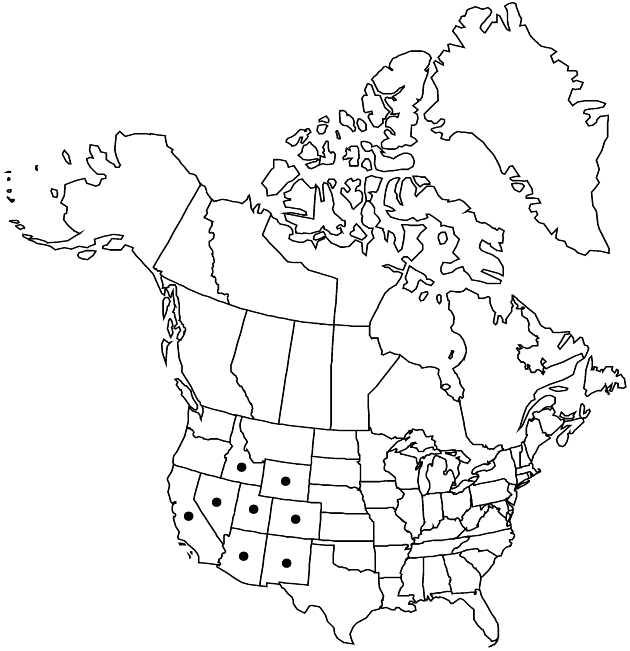Packera multilobata
Phytologia 49: 47. 1981.
Biennials or perennials, 20–40+ cm; taprooted (caudices ascending to erect, weakly branched). Stems 1 or 2–5, loosely clustered, usually glabrous or glabrescent, sometimes sparsely tomentose throughout, axils (basal leaves) tomentose. Basal leaves (and proximal cauline) petiolate; blades obovate, oblanceolate, spatulate, or lyrate to sublyrate (± pinnately lobed, lateral lobes 3–6 pairs, smaller than terminal lobes), 40–80+ × 10–30+ mm, bases tapering, ultimate margins incised to dentate. Cauline leaves gradually reduced (sessile). Heads 10–30+ in open, corymbiform or subumbelliform arrays. Peduncles conspicuously bracteate, glabrous or tomentose. Calyculi conspicuous. Phyllaries 13–21, green (tips often yellow), 4–9+ mm, glabrous or sparsely tomentose (at least proximally). Ray florets 8–13; corolla laminae 7–10 mm. Disc florets 40–50+; corolla tubes 4–5 mm, limbs 3–4 mm. Cypselae 2–3 mm, glabrous or hirtellous on ribs; pappi 5–6 mm. 2n = 46, 92.
Phenology: Flowering early May–mid Jul.
Habitat: Dry rocky or sandy soils in sagebrush, woodlands, and subalpine areas
Elevation: 1200–2900 m
Distribution

Ariz., Calif., Colo., Idaho, Nev., N.Mex., Utah, Wyo.
Discussion
Packera multilobata is abundant and widespread west of the Continental Divide. Both morphology and habitat vary. In colder parts of its range, plants are shorter, caudices are better developed with clustered stems, and leaf lobes are larger. In desert-like habitats, basal leaves are narrower and more finely lobed, the tomentum is often persistent, and stems are usually single.
Selected References
None.